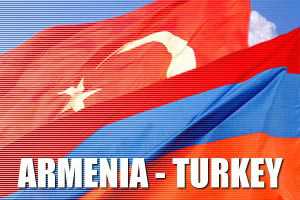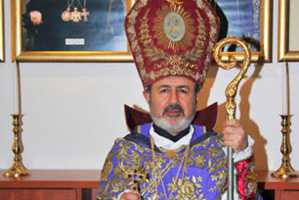By Naira Hayrumyan
ArmeniaNow correspondent
 A real “diplomatic boxing” match has started between Armenia and Turkey, and while formally the reason was the latest statement by Armenian President Serzh Sargsyan, it seems that Turkey is simply nervous because of growing international pressure.
A real “diplomatic boxing” match has started between Armenia and Turkey, and while formally the reason was the latest statement by Armenian President Serzh Sargsyan, it seems that Turkey is simply nervous because of growing international pressure.
Meeting with some senior representatives of the Armenian community in the French city of Marseilles on December 7, President Sargsyan said: “One day the Turkish leadership will find the strength to reconsider its approaches towards the Armenian Genocide… Sooner or later Turkey, which considers itself a European country, will have leadership which will bow at Tsitsernakaberd.”
The statement caused a stormy reaction from Turkey.
Chairman of the Turkish Grand National Assembly Cemal Cicek said that “the normalization of Turkish-Armenian relations entirely depends on the solution of the Nagorno-Karabakh problem.” Speaking at an event in Ankara commemorating Azerbaijan’s late leader Heydar Aliyev on December 12, Cicek accused the president of Armenia of organizing the “Khojalu tragedy” in Karabakh in 1992 in which Azerbaijan claims the Armenian military killed Azeri civilians – an accusation strongly denied by Armenians. “We all know who Serzh Sargsyan is. He is one of the authors of the Khojalu genocide,” Turkish media quoted Cicek as saying.
For his part, Turkish State Minister for EU Affairs Egemen Bagis said that Sargsyan went beyond the limits by making that statement. He stressed that the Armenian people cannot be strong “due to poverty and hunger”. As quoted by the Turkish Anadolu news agency, Bagis said that some Armenians were working in Turkey which showed “the sincerity of Turks.”
An official response came from Armenia. Commenting on Turkey’s EU affairs minister, Armenia’s Deputy Foreign Minister Shavarsh Kocharyan said: “Such a response from the mouth of an official responsible for the integration of Turkey into the European Union proves that today’s Turkey does not yet have the leadership befitting a European country, and some Turkish officials are not bearers of European values and espouse the mentality in the spirit of the worst traditions of the Ottoman Empire.”
For his part, Deputy Speaker of Parliament Eduard Sharmazanov said that Cicek “repeated the legends of Azerbaijani propaganda about a million refugees and occupied territories.” “What a cynic one has to be to talk about occupation when your country has for decades occupied the territory of an EU member state (Cyprus)? To talk about genocide when your country has turned the denial of crimes against humanity into a state policy?!” said Sharmazanov.
But international pressure on Turkey and at the same time on Azerbaijan seems to be gradually building up. The U.S. Senate is voting on Resolution 306, which calls on Turkey to return the confiscated Armenian, Greek and Assyrian church property.
France’s position on Turkey’s membership in the EU has not changed, with French President Nicolas Sarkozy confirming that he would not approve Turkey’s entry bid.
Also, in France a draft law criminalizing the denial of the Armenian Genocide seems to have reached the homestretch. MPs from the French president’s Union for a Popular Movement (UMP) party that has a parliamentary majority on December 8 submitted a bill to the legislative committee of the National Assembly aiming to criminalize the denial of the Armenian Genocide.
And in her December 9 statement in connection with International Human Rights Day U.S. Secretary of State Hillary Clinton mentioned Azerbaijan, along with Zimbabwe, as one of the negative examples in the field of human rights and countries where there are political prisoners.
via Armenia-Turkey: Genocide, Karabakh issues cause fresh round of ‘diplomatic boxing’ between Yerevana and Ankara – Genocide | ArmeniaNow.com.
 “We stood right in the center of Hagia Sophia, when I started telling about the history of the site and mentioned it used to be Christian before being converted into a Mosque,” Asil Tuncer recollects.
“We stood right in the center of Hagia Sophia, when I started telling about the history of the site and mentioned it used to be Christian before being converted into a Mosque,” Asil Tuncer recollects.




